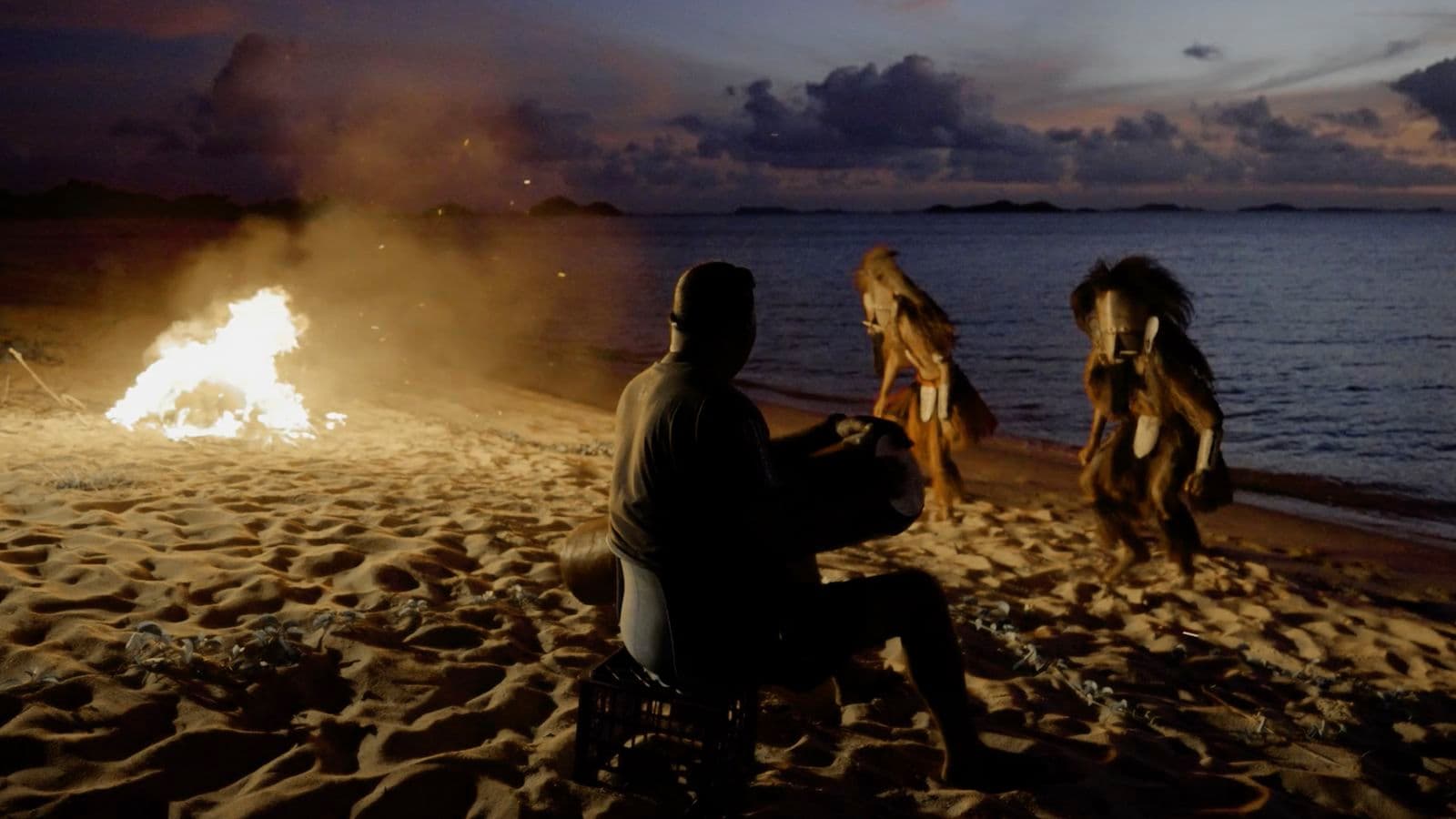Contemporary Worlds: Yudha Fehung

Ruang MES 56, Yogyakarta, Indonesia
MADDY MERZVINSKIS explores the organic collaboration in Yogyakarta’s art collectives with Indonesian contemporary artist YUDHA FEHUNG.
Tentatively wandering an alleyway in Yogyakarta looking for Ruang MES 56, I pass monochromatic street art, a vintage hanging Fujifilm sign and several motorbikes. As I approach a small white house with pastel green window frames, I see two men extracting fluid from a small gadget with a tube at an outdoor table surrounded by an array of international flags and several coffee cups. Another man is building an outdoor toilet. This is it.
MES 56 is an artist collective focusing on the production, dissemination and exploration of conceptual, contemporary, photo-based art. It began as an informal community of students in 1994 and was formally established in 2002. Now, the collective is home to 18 Indonesian artists — a figurative home for most, but a literal one for others, with live-in residencies available.

Yudha Kusuma Putera ‘Fehung’
One of these artists is Yudha Kusuma Putera — his friends call him ‘Fehung’. He wears a t-shirt with a large group photo of the members of MES 56 on the front. Fehung graduated from the Indonesian Institute of Arts in 2012 and has undertaken residencies at Cemeti Art House in Yogyakarta and the Open Contemporary Art Centre in Taiwan through the MES 56 exchange program. He has exhibited his photographic work internationally in Bangkok, Hong Kong, South Korea, Amsterdam and Australia — and his thoughts on where he’d like to show his work next?
‘The more audience the better!’
With his father a commercial photographer, photography was an obvious choice for Fehung, who turned to the camera after finishing high school in search for something to continue studying. Now, he looks to creatives from a range of disciplines for inspiration. Austrian contemporary artist Erwin Wurm’s approach to performance art using sculpture has influenced the participatory methods that Fehung employs in much of his work. When Past, present and future come together 2017 — which features in the National Gallery's 2019 Contemporary Worlds: Indonesia exhibition — was exhibited in the Jogja Biennale, children of nearby schools were encouraged to draw pictures on the gallery walls around the art, and guests were invited to interact with the concept through a weekly open studio where they could recreate their own versions of the photographs. This desire for audience participation sprouts from the innate human need for connection and interaction with others.
‘In my daily life, I’m not very good at communication. But if I have an art project, I have a reason to do something with other people, a way of connecting and communicating,’ says Fehung.

Yudha ‘Fehung’ Kusuma Putera Past, present and future come together, 2017, series of 9 inkjet prints with accompanying instructions for participatory elements of the work, National Gallery of Australia, Canberra, purchased 2018
In this series of works, Fehung explores the idea of a family portrait in a non-traditional sense by obscuring all group members but one with sheets of fabric. This commentary on what makes up a family unit saw him working with parents, children, friends, co-workers, and even his community at MES 56, and entailed a process of negotiation amongst the family members as to who would be the visible face to represent them. In 2010 he undertook a project that was based around his own personal family experiences, and saw this as a challenge and opportunity to use the same theme and method, but with a new perspective. Since getting married and planning to start a family, Fehung has had to reimagine what it means to be a ‘family’, and in turn, his work has become more personal and connected with other people, seeking out others’ interpretations of the word.
In a collectivist society collaboration is just a way of life, particularly in the Indonesian art world. The collaborative effort between Fehung and his subjects is an important part of capturing the essence of each family, but he views the process as an organic way of working together, compared to other countries’ ideas of collaboration.
During his experiences in Taiwan and Europe, he witnessed a more structured, rigid and ‘professional’ way of working, which contrasts with the laidback nature of Indonesian culture.
‘If a friend or another artist needs to make an exhibition, we help them to put up the display, create publications and organise the program…we work together’ Fehung says of MES 56.
Here in Yogyakarta, that’s how things work. They’re slow, relaxed and organic, yet maintain vibrancy, creativity and innovation. And this is the perfect fit for Fehung: ‘this environment is easier to create art in, because it’s my habitat.’
Find Fehung’s Past, present and future come together in Contemporary Worlds: Indonesia, on display at the National Gallery from 21 June — 27 October 2019.

